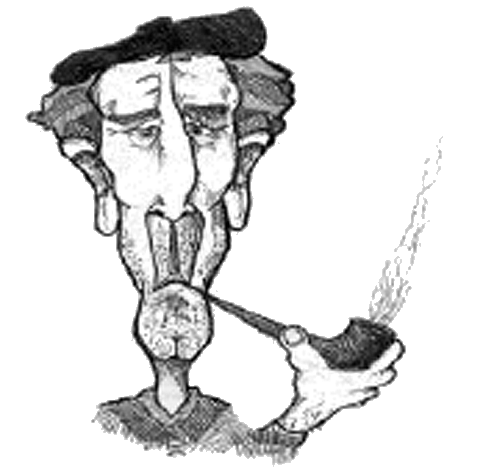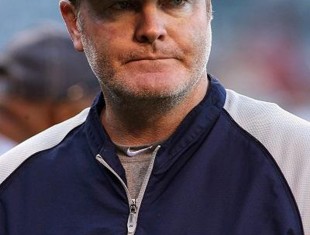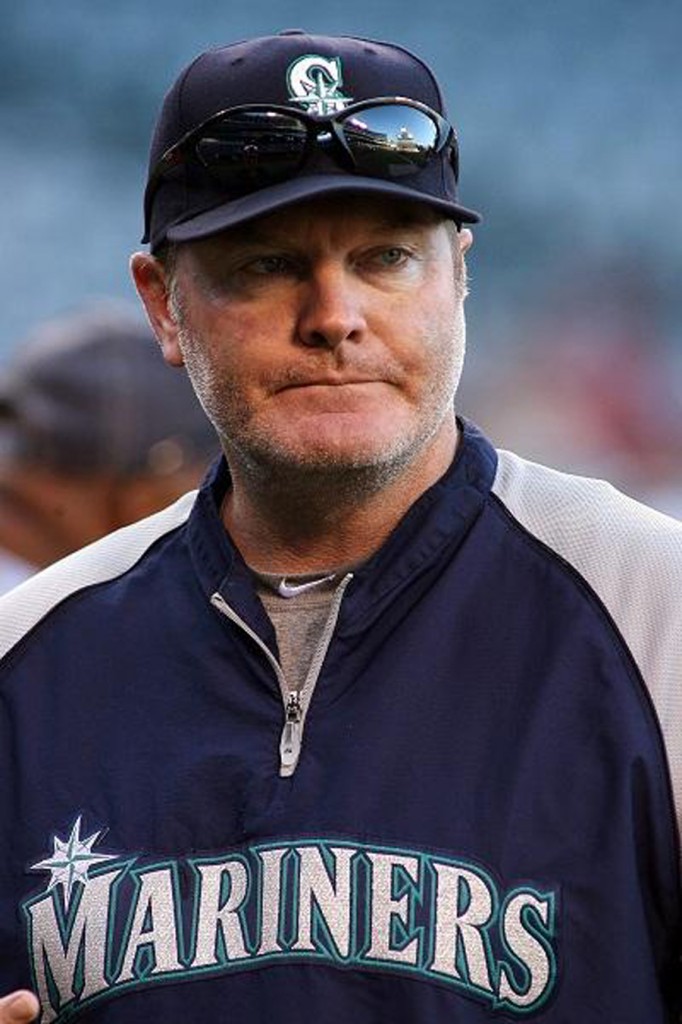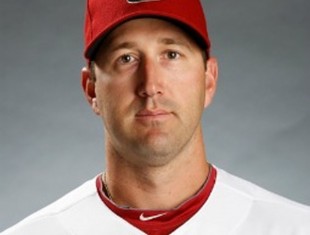Bumming around town with Bill Bumerton
Bumerton is a retired Navy fighter pilot who had been missing in action for several years while he traversed the globe looking for greener grass. He discovered the grass is only greener here (it’s blue in Kentucky), so he returned to again take charge of his 1954 green Hudson Hornet that had been in storage, refilled his pipe, and is continuing his smokin’ ways. Here is what he recently told us at the Sports Paper.

There have been a couple good stories in the Seattle Times on the resignation of manager Eric Wedge. I can sum it up in a few words, Big Dawg: more of the game. Those Marinaros of yours are not going to change as long as the Lincoln and the Armstrong run the joint. Those two have made the franchise very worthily as a business – the franchise is now estimated to be worth over $1 billion – but when it comes to baseball, they are not worthily of being close to a baseball park. From what I gather listening to the radio and TV broadcasts and from reading various reporters covering the team, Wedge was well liked: A man’s man kind of guy who was fair and open and a good person in the community (along with his wife). But the men at the top left Wedge hanging out to dry, so he walked away like a man should. Too bad. But that’s the history of this franchise, and it’s not going to change as long as men who have increased the value of each owner’s investment over the years run it. In other words, Big Dawg, baseball comes maybe third or fourth on the totem pole. If the team wins, ok, but as long as the franchise continues to increase in value, it really doesn’t matter whether the team wins on the field. So future mangers should beware.
Eric Wedge
… It now appears Kingston is the football power in the Olympic League. I would then put the rest of the teams in this order: North Mason, Olympic, North Kitsap, Klahowya, Bremerton, Sequim and Port Angeles. The second through fifth spot is up for grabs: they are all close. I can’t quite figure out Bremerton. The Knights have some good skill people and are young, but I thought they would be better than this. Kingston is a tough bunch that follows their leader, W. Todd Harder, a military man who has brought more toughness to the Buccaneers. One of the toughest is safety-wide receiver Henry English, a Kingston senior. That kid, Big Dawg, is really good. He intercepted two passes and should have had a third against Klahowya. And he made some big offensive plays, including a 69-catch and run for a touchdown. … I’m worried about our President. He’s an appeaser who when pushed gives and I think leaders in other countries (think Iran, North Korea, Syria) may be taking advantage of that now. I hope the people surrounding the President can reach him and toughen him up a little bit so he doesn’t give away the store. In the meantime, the far right section of the Republican Party thinks the same thing and is pushing the President on Affordable Health Care to the brink of economic disaster in this country. Will he cave? We’re going to find out. … The Seachickens look like wimps the first half against the Texans and then pull out a miracle win in the second half. Their second-year quarterback, Russell Wilson, was running for his life much of the day, especially from J.J. Watt, who is an incredible defensive force. Someday Wilson will scamper the wrong way and run into another defensive giant and be crushed like an accordion. I hope not, Big Dawg, but, boy, sometimes my heart skips a beat when I see him pull out another of his magic tricks and flees just at the last second from danger. I keep thinking he’s going to get mauled one of these days, and then what do the Seachickens do? … While I’m at it, what about Peyton Manning? That guy is having a great start to the 2013 season. The 37-year-old son of Archie Manning set a No Fun League record through four games with 16 touchdown passes. He has found his niche in Denver and the Broncos look like the early favorite to win it all (even better than the Seachickens). It’s easy to say how you stop great quarterbacks: Put pressure on them. But it doesn’t seem to work with Peyton. He has such a quick release, is very accurate with a strong arm, and has excellent receivers. When you don’t put pressure on him it’s like committing suicide, because he will pick you apart. The Seachickens first half against the Texans shows what happens when you don’t pressure a QB. Matt Schaub made it look easy that first half and the Seachickens looked doomed. But they put pressure on Schaub the second half and when teams do that to him his production drops off quite quickly. You force Schaub to scramble and he’s very inaccurate. That’s what got the Seachickens back in the game and then the victory in overtime. … The Kitsap Scratch Bowlers Association got started a week or so when Dean Richards won the Westbay Auto Open held at Hi-Joy Bowl in Port Orchard. Richards was the leader after qualifying and knocked off Scott Schimming in the TV finale, 201-184 to win his first KSBO title. Brandon VanWinkle, who also grabbed his first KSBO title, won the Tom Myers Memorial 205 and Under Division. He beat Rick Thorene, 215-134 in the championship match. Prior to the tournament the KSBO awards from last season were announced. The KSBO All-Star team consists of Lonnie Sharkey, Mike VanWinkle, Tom Jamrog, Tim Clemens, and Lisa Barfield. Sharkey was named Bowler of the Year in the Open Division. Preston Carson was the Bowler of the Year in the 205 and Under Division. Jim Monahan, general manager of bowling at All Star Lanes, won the Tom Myers Inspirational Award. … Big Dawg, you got an email from Tom Gilmour, who lives in Tucson, Arizona. He talked about the column you did in the Kitsap Sun on Jim Herdman. It’s an interesting side to the column. In the email, Gilmour wrote in part, “ I have been a friend of Jim Herdman since 1990 when I moved to Bremerton with my ship, the USS California. I rented a house on Pleasant Avenue that Jim owned, and we immediately became acquainted with each other’s passion for baseball. I think he was initially fascinated with the fact that I had played at the University of Arizona in my pre-Navy days, where I was a teammate or opponent of a number of major league players at the time. I also had a passion from a very young age for baseball history. All I used to do as a child was study the Baseball Encyclopedia and memorize statistics, a natural gift that has since come in handy in my current profession- the U.S. Postal Service. Soon after my arrival in Bremerton, Jim asked me to come out and help with his Warren Avenue B string team. I shared some of the drills I had learned under Jerry Kindall at the U of A and other “tricks” that I had picked up from personal experience. The next thing I knew, I was out there with the boys every time I was not on duty over at the shipyard. For the next two seasons, Jim and I coached those kids side by side culminating in the 1991 B-String championship (a dramatic come-from-behind victory over bitter rival East Bremerton). Take it from me, Jim could have been a pretty good manager at a high level if he had pursued that path, but at the Peewee level, he was the best. We became very close. I am sure that you got a feel for Jim’s kind and gentle spirit while conducting your interview. I can attest to that, as I have remained friends with him even after my discharge from the Navy in August, 1991. I returned to Tucson and began classes at the U of A six days after leaving Bremerton. I was aware of Jim’s ballpark “hobby” before I left, so it was no surprise when he asked me to fill in some holes in his research with the help of the extensive University of Arizona library collections. This was pre-internet, so we corresponded through the mail. I did help fill in a couple of blank “balks”, “wild pitches”, or “sacrifice hits”, but my contribution was miniscule in the grand scheme of what Jim had accomplished. I always thought I was the champion of obscure baseball trivia, but I was impressed by how deep Jim was willing to dig to get the facts he sought.” Gilmour went on to write that his goal is to play golf in all 50 states and when he visits Bremerton, probably next June, he will, as part of the trip, play golf in four more states to make it 42.



